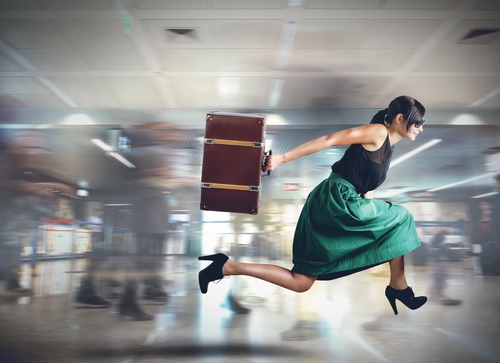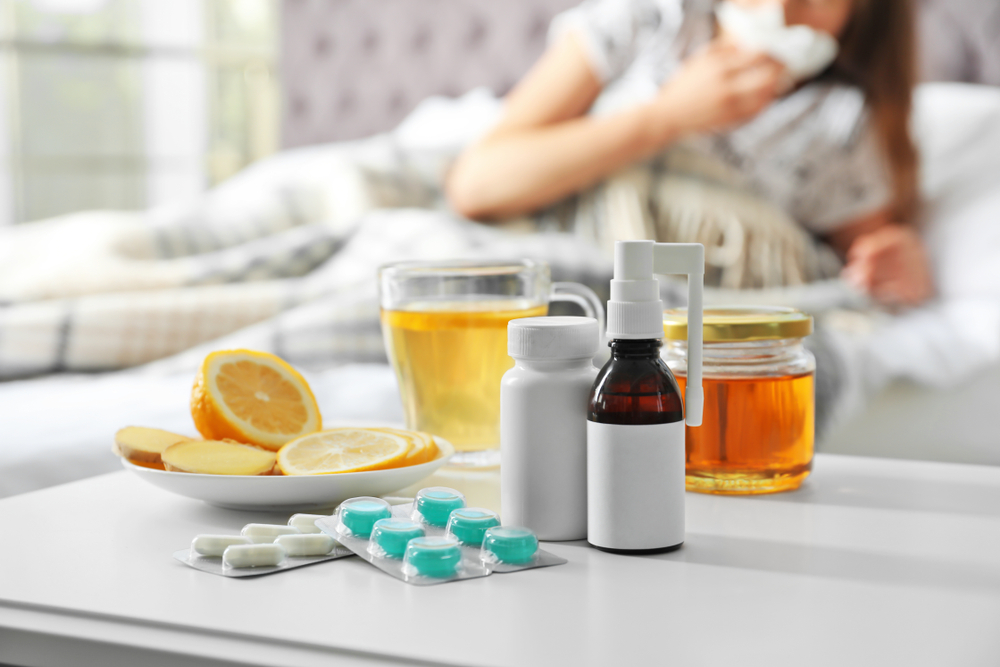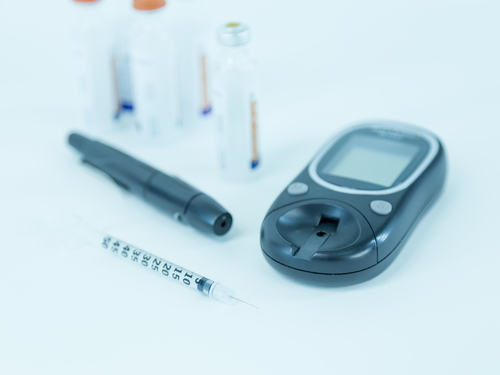What's On This Page?
ToggleI’ve been traveling more recently, and noticed that things come up! As a result, I’ve discovered the 12 must-have medications and supplements to help you feel more confident should some ailment occur.
I pinched my finger on the roller conveyer thing during my security check. I thought that was the end of it, but I had packed a gift for my son-in-law… banana bread.
The next hitch was when the very rude TSA agent held me up 20 minutes to determine that the banana bread loaf (in a disposable foil loaf pan) was not a bomb in my luggage… he yelled at me over it! Not having enough time to put on my sneakers, I opted for slip-on sandals and literally ran through the airport. This produced a minor but uncomfortable blister to deal with!
But YES, I did make it onto the plane (breathless) and as the last person to board!

Later on, Sam had a reaction to the moldy hotel in Gainesville shortly after checking in…
The point is things happen. Has anything like this happened to you? Luckily, I had Neosporin ointment for my heel, an antihistamine for Sam, and a bandage for my finger.
Whether traveling for business or pleasure, staying healthy while on the go is crucial for an enjoyable trip. Plus, it just provides a sense of peace to feel confident and be prepared for little things, and not have to stop at a pharmacy for this or that. What if you don’t have a rental car? That makes getting a last-minute essential even harder!
According to a study by the World Health Organization (WHO), travelers are at risk of acquiring a wide range of infections, with up to 70% of travelers experiencing some health problem during their trip.
A survey by the American Pharmacists Association found that 72% of travelers had to use OTC medications during their trip, with pain relievers and antihistamines being the most commonly used items. Let’s all become a smart traveler today! And I’ll provide the items I think you need based on my pharmacist’s perspective.
A Note about Destination
Before I delve into the list, you might be curious like I was about which countries or destinations have a higher risk for contracting an illness.
Some countries in regions such as Mexica, India, Cambodia, Laos, Myanmar, Egypt, Mexico, and Thailand are considered to have a slightly higher risk of diseases due to inadequate sanitation or water treatment facilities. As such, people may experience diseases or problems like hepatitis, diarrhea, cholera, typhoid fever, nausea, and vomiting, or food-borne illness.
It is important to note that even in developed countries, drinking untreated water from natural sources such as lakes or rivers can also pose a risk of waterborne illness.
The 12 Must-Have Medications for a Smart Traveler
Let’s now discuss the 12 most important things to pack for your next trip, based on my expert recommendation as a pharmacist. You will see that I recommend some oral pills/supplements.
I like to take unit-dose pills or capsules not the entire bottle of these things because it will fill up your suitcase pretty quickly. If you don’t want to purchase unit-dose versions, just put a few pills into a small ziploc baggie or a pill container, but make sure it’s labeled properly.
1. Antihistamine – This pill is something I suggest for people in case of a mild allergic reaction or an itchy rash. This would be great if you react to a drink like I did when I tried a Bahama Mama once! My lips swelled up and my throat itched.
Luckily, I had a Claritin in my room. Antihistamines are also great for a runny nose or post nasal drip or constant throat clearing. I often recommend Claritin (which is non-sedative and can be taken during the day.) But you could also take Benadryl (which causes drowsiness) and you would just use that one at nighttime. If you don’t want a drug, and prefer supplements, read my blog, The 5 Best Natural Antihistamines.

2. Cold medicine – I usually have a bottle of nose spray in case I get a cold. It will help with nasal congestion and a sinus headache. Luckily, I’ve never had to use it, but I’m comforted by having it in my case.
3. Anti-itch cream – to relieve itching caused by bug bites, sand fleas, rashes or other minor skin irritations, or even allergic dermatitis. I recommend hydrocortisone cream.
4. Sleep aid – This will help with sleep disturbances caused by jet lag or changes in time zones. I recommend melatonin for jet lag, but if you have Benadryl as your anti-histamine that will also put you to sleep.
5. Eye drops – Having a redness-reliever eye drop will help you if you get irritated eyes from the plane, or dust, pollen or even moldy hotel rooms. I’ve used these before while traveling internationally because it helps tired jet lagged red eyes. I have a friend who uses it for hangovers too! Something like Visine will do the trick to soothe tired, red eyes.
6. Earplugs – Recently, I stayed at a Staybridge hotel and the room next door had two dogs that would not stop barking! This was annoying. A loud tv, crying baby or other noises can also keep you awake all night hotel, so I recommend silicone earplugs in your kit, just in case. It will help you sleep if you encounter obnoxious residents next door.
7. A PAIN & FEVER reliever – Ibuprofen or acetaminophen are the two that I recommend because both will do the trick in a hurry! Either one of these can help relieve pain from headaches, toothaches, and muscle aches that may occur during travel. As for fever, acetaminophen is a little better for fever because it’s a stronger anti-pyretic. I was happy to have some in my cosmetic bag during one trip to Las Vegas. I was there about 6 years ago, attending a health conference and woke up at 3am with a very high fever! I was able to treat myself and stay comfortable for the remainder of the trip without having to leave my room.
8. Anti-diarrhea medication – Imodium or other anti-diarrhea medication can help alleviate symptoms of traveler’s diarrhea, a common condition that affects many travelers. Having a probiotic would be super useful too! Before I leave the topic of diarrhea, I just want to say that some people experience the annoying problem because they take the WRONG kind of magnesium supplementation, a mineral commonly used for depression, arrhythmias, osteoporosis and migraines.*
Do you? READ THIS BLOG.
Most people encounter this condition if they drink the water, for example in Cancun, or other areas of Mexico. It is well-known NOT to drink the water there. But what if you accidentally forget, or you order a drink from a bar that uses tap water, or you ‘swallow’ some from the shower head as it drips down your face (I know someone who did that and actually got sick). Anyway, diarrhea is probably the most common ailment on my list, so a remedy would be most important if you could only take a few items on this list.
Imodium is everyone’s favorite including mine in terms of efficacy, however some people report success with Kaopectate or Pepto-bismol. Whatever works for you! Having a probiotic would be super useful too, just make sure it’s alive, fresh, stable and does not require refrigeration! In other words, finding a probiotic capsule from a year ago in your travel case is not any good! Activated charcoal capsules do not require prescription and can help with a stomach bug (ie food or water poisoning) however it’s not a specific treatment for diarrhea.
9. Electrolyte solution – Something such as Pedialyte replenishes fluids and electrolytes lost due to diarrhea or vomiting. This remedy will also help you with leg cramps. For travel ease, check out these other great options:
Jigsaw Electrolyte Supreme Packets
Redmond Re-Lyte Electrolyte Mix
LMNT Keto Electrolyte Packets
Having had 3 of my 4 parathyroid glands removed (which regulate calcium in my body), I am more prone to cramps. I NEVER leave home without one of these electrolyte solutions, or magnesium or calcium! By the way, the parathyroid glands have nothing to do with thyroid hormone. That’s a whole other thing. The parathyroid glands make PTH hormone and are named as such because they are anatomically next to the thyroid glands, and they are in charge of some of your electrolytes like calcium , magnesium and phosphorous.
10. Antacids – Tums or Pepcid AC can help relieve symptoms of heartburn or acid reflux, which can be triggered by meal that includes hot salsa or spicy barbecue sauce!
11. Bandages and antibiotic ointment – These items can help treat minor cuts and scrapes that occur during outdoor activities or after pinching your finger in the airport security line. I recommend Neosporin ointment. You can get little single-use packets of this, or just carry a tiny tube. It’s great to put on cuts.
12. Ginger capsules or tablets – This is useful if you get nauseous, or if you get sick on long windy roads. Also, if you are planning to take a boat ride to go snorkeling, whale-watching, or sunset cruising. If you need it take it, then take it with a full glass of water about one hour before the event.

Prescription Bottles of Insulin and Needles are a Must-Have Medication for Some!
It is possible to travel with insulin and needles on a plane, but there are some important considerations and regulations to be aware of. You should also double-check what I’m saying here with your airline.
First, insulin and needles should be packed in your carry-on luggage, or handbag, not checked baggage. This is to ensure that they are easily accessible during the flight and do not get lost or damaged.
Second, you will need to inform the airline and/or airport security of your medical condition and that you are carrying insulin and needles with you. Don’t try to sneak them on. You may be asked to show a letter from your healthcare provider explaining your need for insulin and/or needles. It’s a good idea to have this letter with you, along with a copy of your prescription for insulin.
Third, TSA (Transportation Security Administration) has specific guidelines for carrying medical supplies on flights. Insulin and needles are allowed in your carry-on bag, but they must be properly labeled with your name and prescription information. You should also have your own ice pack or another cooling mechanism to keep the insulin at the appropriate temperature during the flight.
It’s also a good idea to pack extra supplies in case of unexpected travel delays or other issues. Make sure your hotel room has a mini fridge in it. If it does not, call the front desk to see if they can bring one up to your room. You can also keep refreshing the ice bucket to keep your medication fresh and stable.
Summary
According to a survey by the Centers for Disease Control and Prevention (CDC), over 50% of travelers experience health problems during their trips, including diarrhea, respiratory infections, and skin conditions. By packing essential OTC medications and supplements, you can help prevent or alleviate these issues and enjoy traveling rather than worrying about where to get these items locally.
If you have a chronic medical condition that requires prescription medication, needles or refrigerated items make sure to have them packed in their original packaging or prescription bottle. If you feel I’ve missed anything important in my list of the top 12 must-haves, feel free to EMAIL ME: scriptessentials@gmail.com

Suzy Cohen, has been a licensed pharmacist for over 30 years and believes the best approach to chronic illness is a combination of natural medicine and conventional. She founded her own dietary supplement company specializing in custom-formulas, some of which have patents. With a special focus on functional medicine, thyroid health and drug nutrient depletion, Suzy is the author of several related books including Thyroid Healthy, Drug Muggers, Diabetes Without Drugs, and a nationally syndicated column.


